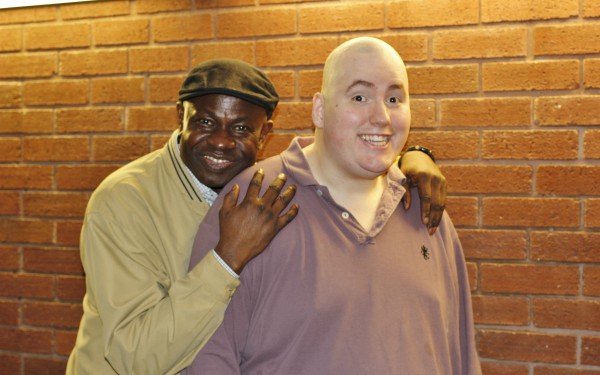
By Mark Neary
Six years ago today, I sat in the High Court and heard Justice Peter Jackson hand down his judgment in the case of Neary vs Hillingdon. Eighteen months earlier, my son Steven Neary, who had autism and severe learning difficulties, left home for three days respite as I was unwell. Hillingdon council then detained Steven in a positive behaviour unit for 359 days.
The judge’s ruling held that all four Deprivation of Liberty authorisations that had been served on Steven throughout 2010 had been unlawful and the council had breached Steven’s Article 5 and Article 8 human rights for the entire year.
Justice Jackson praised me in his judgment but what really touched me was how much his judgment demonstrated that he really understood Steven. After a year fighting a collective closed mind to Steven, this was moving and reinforcing. The day before the court hearing began, Hillingdon council issued a press release that Justice Jackson described as “a sorry document, creating an unfair and negative picture of Steven”.
To see my son described in the final judgment as a legitimate human being was incredibly liberating. It inspired me to write about our lives in a frame that shows that learning disabled people can lead ordinary, fulfilling lives. The judgment also motivated me to campaign for the human rights of people like Steven to be upheld.
‘Joy, love and foundation’
A lot has happened since 9th June 2011. I now have an alternative career as a writer and public speaker. Steven now has his own home, where he is very much king of his castle and he continues to thrive. Every so often as I observe Steven going about his daily business in his home, I am shaken by how different his life could have been.
Hillingdon’s plan was to send Steven 250 miles from home to a hospital in Wales. Having learned since of other people’s experiences in assessment and treatment units, I have no doubt that had Hillingdon’s plan been successful, Steven would still be there, six years on.
That thought chills me to the bone. All the relationships he values with his family, his friends, his support workers would have either ended or never have happened. The small things that give Steven’s life its meaning, like watching Mr Bean, listening to Abba, talking about memories to me, would be impossible in an institutionalised life. Being able to visit his uncle across the road and take him some cake is very different to the Skype contact that the council was recommending. He wouldn’t have had a life.
Thankfully, Steven has a life. Thanks to the legal world and the Human Rights Act, Steven has a good life. It’s a life that he has created for himself and that gives him joy, love and foundation. As a father, I am extremely proud of him and grateful for that.


 Bournemouth, Christchurch and Poole
Bournemouth, Christchurch and Poole  Hampshire County Council
Hampshire County Council  Lincolnshire County Council
Lincolnshire County Council  Norfolk County Council
Norfolk County Council  Northamptonshire Children’s Trust
Northamptonshire Children’s Trust  South Gloucestershire Council
South Gloucestershire Council  Wiltshire Council
Wiltshire Council  Wokingham Borough Council
Wokingham Borough Council  Children and young people with SEND are ‘valued and prioritised’ in Wiltshire, find inspectors
Children and young people with SEND are ‘valued and prioritised’ in Wiltshire, find inspectors  How specialist refugee teams benefit young people and social workers
How specialist refugee teams benefit young people and social workers  Podcast: returning to social work after becoming a first-time parent
Podcast: returning to social work after becoming a first-time parent  Podcast: would you work for an inadequate-rated service?
Podcast: would you work for an inadequate-rated service?  Family help: one local authority’s experience of the model
Family help: one local authority’s experience of the model  Workforce Insights – showcasing a selection of the sector’s top recruiters
Workforce Insights – showcasing a selection of the sector’s top recruiters 

 Facebook
Facebook X
X LinkedIn
LinkedIn Instagram
Instagram
Fabulous. So pleased for Steven. What the LA did was disgusting and should never have happened. Total abuse of power.
As a career of someone who has Autism, a Social Worker, trainer and consultant I am delighted that your story has such a positive outcome. It takes strength, determination and bravery to challenge these things and the love of a parent provides such strength. Human Rights are so important and need to be a key aspect of every day Social Work. We need to consider Human Rights in every decision made. I am so pleased that you have highlighted these issues. Person centred practice with a focus on Human Rights is so important. All the best wishes for you and your son.
Justice was done. Steven goes from strength to strength
Dear Mark
this case made me very very angry and I am full of admiration for you and your tireless fight against an incompetent and stubborn local authority no matter how good but misconceived their intentions may have been although I still struggle to understand their position in any way.
Really glad that Steven is going from strength to strength.
Inspiring
regards
Julian.